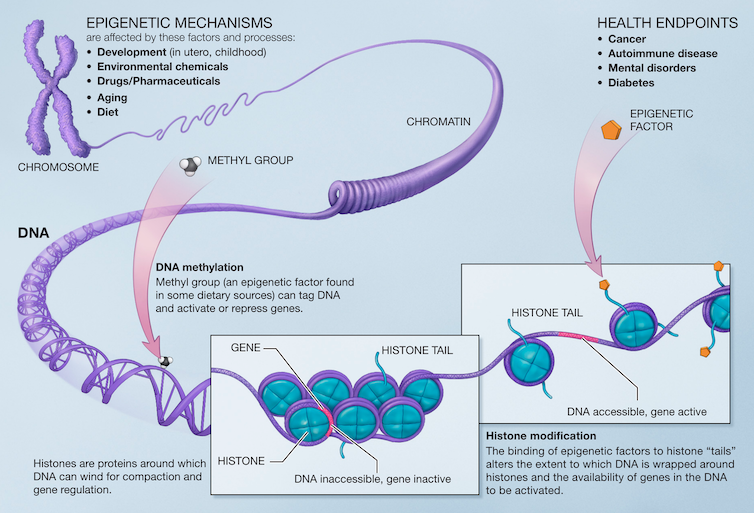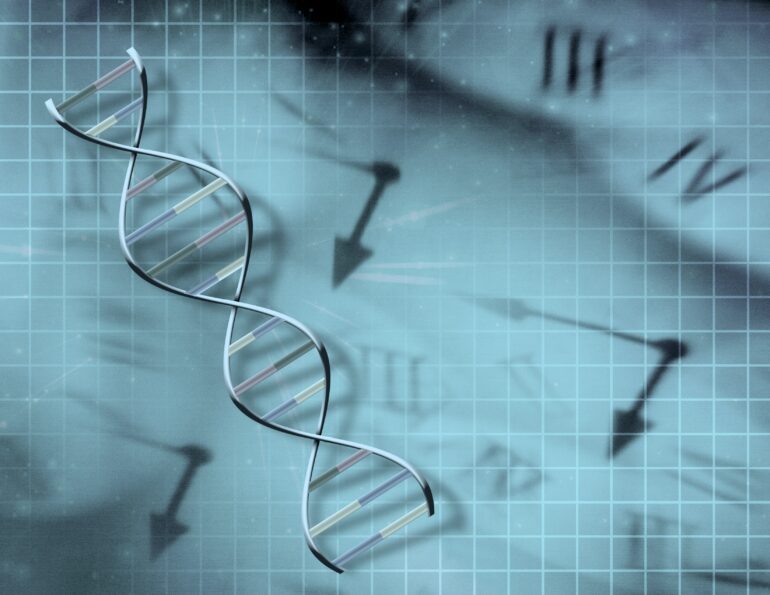Can we objectively tell how fast we are aging? With a good measure, scientists might be able to change our rate of aging to live longer and healthier lives. Researchers know that some people age faster than others and have been trying to concisely measure the internal physiological changes that lead to deteriorating health with age.
For years, researchers have been using clinical factors normally collected at physicals, like hypertension, cholesterol and weight, as indicators to predict aging. The idea was that these measures could determine whether someone is a fast or slow ager at any point in their life cycle. But more recently, researchers have theorized that there are other biological markers that reflect aging at the molecular and cellular level. This includes modifications to a person’s genetic material itself, or epigenetics.
While each person has a genetic makeup that largely does not change over their lifetime, chemical changes to their genetic material that occur throughout life can change which genes are turned on or off and lead to more rapid aging. These changes typically involve the addition of methyl groups to DNA and are influenced by social and environmental exposures, such as adverse childhood experiences, smoking, pollution and depression.
The body undergoes many changes as it ages.
But how well do epigenetic markers predict the important health changes that happen with aging? We are social scientists who study how social factors predict aging. Our previous research has shown that factors like education, poverty, race, access to medical care and certain health behaviors can influence aging rates. We are incorporating biological measures like epigenetic age in large population studies to understand how social factors get “under the skin” and affect aging. In our recently published study, we found that while epigenetic age does predict certain health outcomes later in life, it does little to explain important differences related to social factors.
What is epigenetic aging?
In 2013, geneticist and biostatistician Steve Horvath introduced the idea that a person’s rate of aging would be captured by the level of methylation in their genome. He also developed ways to measure epigenetic age in terms of years and compare this age to one’s chronological age.
Researchers have since developed several measures that can more reliably predict health outcomes based on epigenetics. Some have suggested that DNA methylation could potentially be used to summarize the amount and rate of aging with a few drops of blood.

Epigenetics can influence health in a number of ways.
National Institutes of Health
Comparing epigenetic and social factors
It has been unclear how well epigenetic age predicts health outcomes compared to other nongenetic factors like demographics and socioeconomic status. We wanted to see whether…



